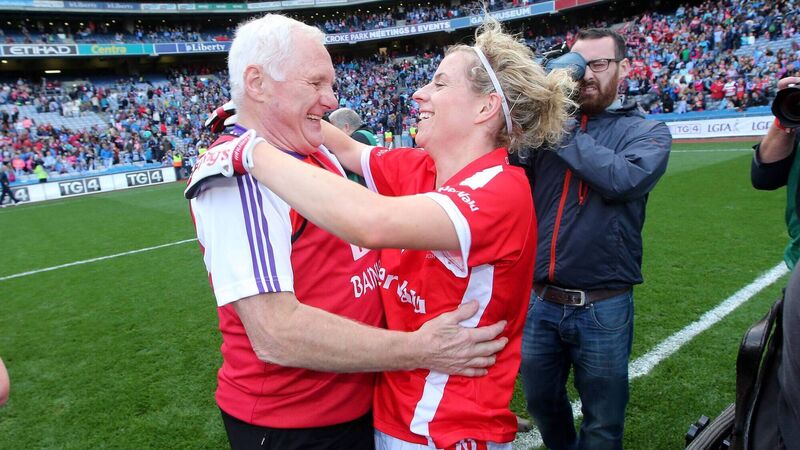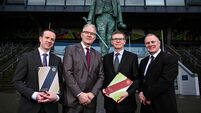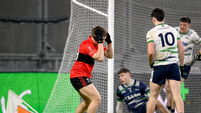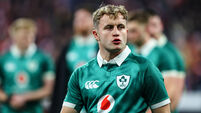Valerie Mulcahy: We were blessed, lucky, honoured and so greatly privileged to be guided by Éamonn Ryan

2014 TG4 All Ireland Ladies Senior Football Championship Final, Croke Park, Dublin 27/9/2015.Cork vs Dublin.Cork Manager Eamonn Ryan and Valerie Mulcahy celebrate at the end of the game .Mandatory Credit ©INPHO/Ryan Byrne
The last time I spoke to Éamonn Ryan was in late August. I can still vividly remember the moment for more than just reasons of it being our final conversation; I was in the schoolyard in Gaelcholáiste Mhuire, AG with a stack of books in my arms, when the warmth of Éamonn’s words lightened the load, as they always did.
It was almost apt that we spoke in AG because Éamonn was a very proud past pupil of the school formerly known as North Monastery.











